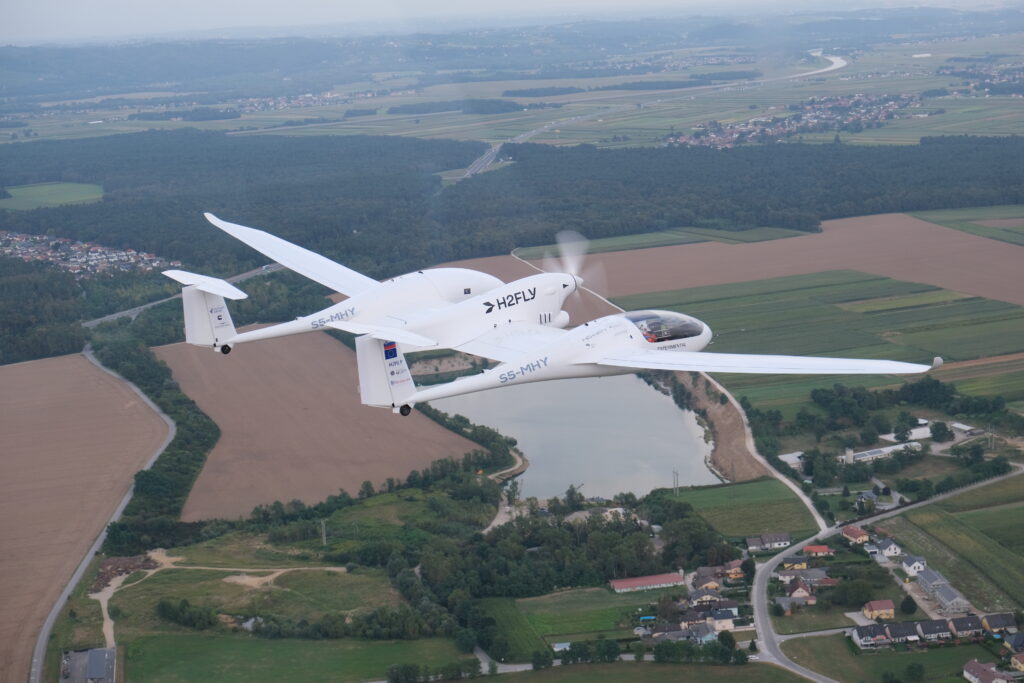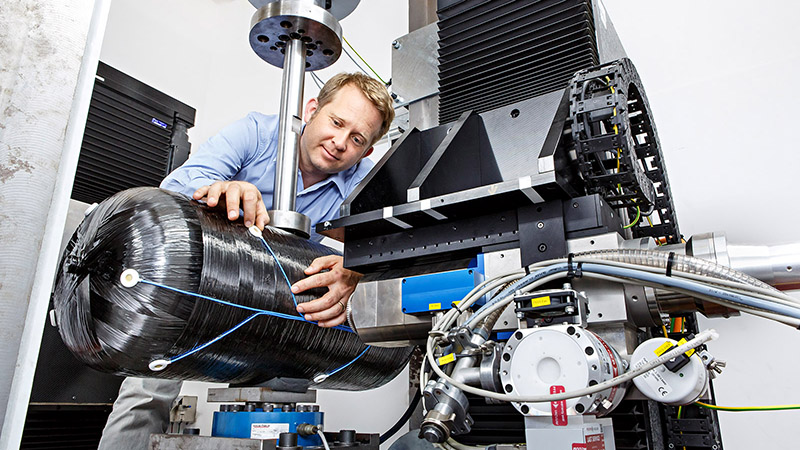Hydrogen-powered Aircraft Completes its First Flight

H2FLY has announced it has successfully completed the “world’s first” piloted flight of an electric aircraft powered by liquid hydrogen. How does this project lay the foundation for long-range emission-free flights?
The Stuttgart, Germany-based developer of hydrogen-electric powertrain systems for aircraft has completed four flights powered by liquid hydrogen as part of its flight test campaign. This included one flight that lasted for over three hours.
These flights were completed with the company’s piloted HY4 demonstrator aircraft, fitted with a hydrogen-electric fuel cell propulsion system and cryogenically stored liquid hydrogen that powered the aircraft.
The project will demonstrate hydrogen’s potential in the aviation industry
Results of the test flights have indicated that using liquid hydrogen in place of gaseous hydrogen will double the maximum range of the HY4 aircraft from 750 km to 1,500 km.
Professor Josef Kallo, Co-founder of H2FLY, explained that the project is marking a key step towards the delivery of emission-free flights for commercial flights.
He said: “This achievement marks a watershed moment in the use of hydrogen to power aircraft. Together with our partners, we have demonstrated the viability of liquid hydrogen to support medium and long-range emissions-free flight,”
We are now looking ahead to scaling up our technology for regional aircraft and other applications, beginning the critical mission of decarbonizing commercial aviation.
H2FLY has revealed that the successful campaign marks a significant milestone for the company, reflecting the extensive insights from its research efforts.
In addition, it is the culmination of Project HEAVEN, a European-government-supported consortium that aims to show the feasibility of using liquid, cryogenic hydrogen in aircraft.
It is led by H2FLY and includes the partners Air Liquide, Pipistrel Vertical Solutions, the German Aerospace Center (DLR), EKPO Fuel Cell Technologies, and Fundacion Ayesa.
The work has also been funded by the German Federal Ministry for Economic Affairs and Climate Action (BMWK), the German Federal Ministry for Digital and Transport (BMVD), and The University of Ulm.
Hydrogen is one of the solutions for decarbonising commercial air travel
Compared with pressurised gaseous hydrogen storage (GH2), the use of liquified, cryogenic hydrogen (LH2) will help to significantly lower tank weights and volume. This will lead to increased aircraft range and useful payload.
Pierre Crespi, Innovation Director at Air Liquide Advanced Technologies, expressed that hydrogen looks to be a key solution in decarbonising the aviation industry: “Today’s success demonstrates the full potential of liquid hydrogen for aviation. Liquid hydrogen can be stored onboard and transported.”
Hydrogen is key to the energy transition and this new step proves that it’s already becoming a reality.
Following on from the completion of the flight testing in project HEAVEN, H2FLY will now focus on the path to commercialisation.
In June, the company announced the development of its new H2F-175 fuel cell systems which are said to be capable of providing their full power range in flight altitudes of up to 27,000 ft.
In 2024, H2FLY will open its Hydrogen Aviation Center at Stuttgart Airport. This will be co-founded by the Ministry of Transport Baden Wurttemberg.
The Centre will become a focal point for the future of the aviation industry and the hydrogen economy, providing fuel cell aircraft integration facilities and liquid hydrogen infrastructure.
Projects like these that are focusing on bringing hydrogen fuel cell technology to the next level, will be critical in unlocking sustainable air travel.

